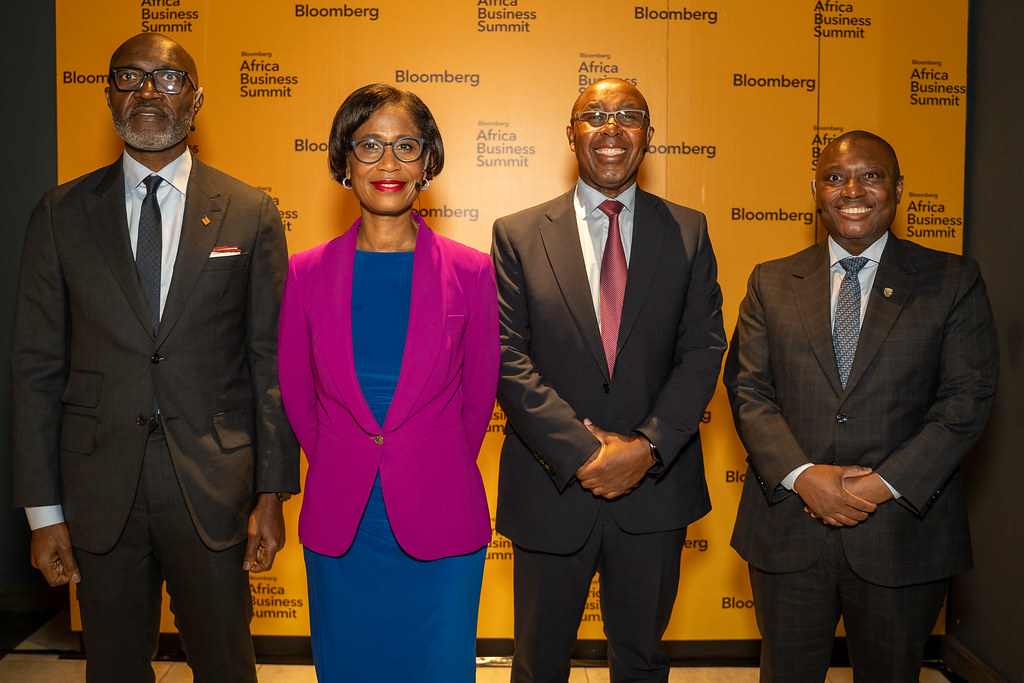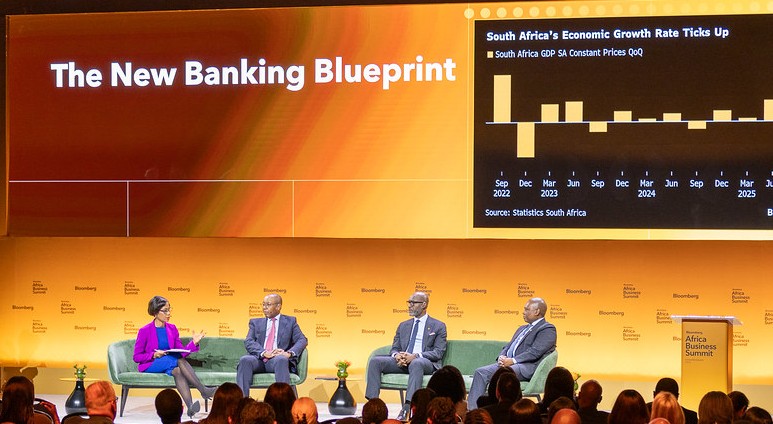37
Onome Amuge
Africa is staking its claim as a continent capable of financing its own growth, even amid geopolitical uncertainty and global market volatility. Powered by homegrown institutions and visionary leadership rather than foreign intervention, the continent is showcasing that sustainable development can be driven from within. The recent Bloomberg Africa Business Summit highlighted this message, as top banking executives explored how Africa can leverage its resources, talent, and capital to shape its economic future.
Speaking at the event, Roosevelt Ogbonna, managing director and CEO of Access Bank, offered what many described as a forward-looking perspective on the continent’s financial future. Addressing a global audience of investors, policymakers, and corporate leaders, Ogbonna stressed that Africa’s markets are more resilient and sophisticated than often portrayed. Citing Nigeria’s recent Eurobond issuance, which was oversubscribed multiple times, he argued that investors respond favorably to reform-driven environments and disciplined governance. “Markets are more intelligent than the narratives that often surround Africa,” Ogbonna said.
The summit, which also featured Sim Tshabalala, CEO of Standard Bank Group, and Kenny Fihla, Group CEO of Absa Group, highlighted that African banks are increasingly assuming roles that go beyond traditional banking. Ogbonna articulated a vision of Africa not merely as a consumer market but as a global hub for trade, innovation, and value-added production. With abundant natural resources, a growing skilled workforce, and emerging technological infrastructure, the continent is poised to move up the value chain, from exporting raw materials to manufacturing and processing goods domestically.
For Access Bank, this vision is realized through a strategy of comprehensive banking, encompassing retail banking, support for small and medium-sized enterprises (SMEs), corporate finance, and investments in key sectors such as renewable energy, digital infrastructure, and industrial processing. Ogbonna emphasised that African banks have a distinct advantage in filling gaps left by the retreat of some Western institutions on the continent.
 L-R: Roosevelt Ogbonna, managing Director/CEO Access Bank Plc; Jacqueline Simmons, senior executive editor, EMEA, Bloomberg; Kenny Fihla, Group CEO of Absa Group; and Sim Tshabalala, Group CEO, Standard Chartered at the Bloomberg Africa Business Summit held in Johannesburg recently.
L-R: Roosevelt Ogbonna, managing Director/CEO Access Bank Plc; Jacqueline Simmons, senior executive editor, EMEA, Bloomberg; Kenny Fihla, Group CEO of Absa Group; and Sim Tshabalala, Group CEO, Standard Chartered at the Bloomberg Africa Business Summit held in Johannesburg recently.
“Our expansion is driven by deep local expertise, a nuanced understanding of diverse markets, and the ability to deliver solutions that foreign institutions often overlook. Our goal extends beyond profitability; it is about catalyzing growth, strengthening ecosystems, and driving development across regions and sectors,” he explained.
A recurring theme of the summit was the need to overcome the so-called “perception premium”, the persistent risk bias that inflates the cost of capital for African economies and businesses. Ogbonna argued that bridging this gap requires pairing global perspectives with local ownership, including engaging international capital markets while simultaneously nurturing domestic infrastructure, talent, and enterprise. This dual approach, he suggested, is central to unlocking internal capital flows and expanding trade, technological innovation, and large-scale development projects across the continent.
Beyond finance, the discussion highlighted Africa’s potential to set its own economic agenda. Ogbonna expressed confidence that the continent possesses the necessary ingredients to chart a self-reliant path, given its rich natural resources, a growing talent pool, and a rising generation of entrepreneurs and innovators. What remains essential, he said, is the vision and leadership to align these assets with a “Global Africa” strategy,one in which African banks, investors, and policymakers work collaboratively to define the continent’s financial destiny.

